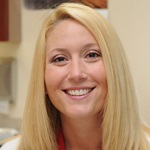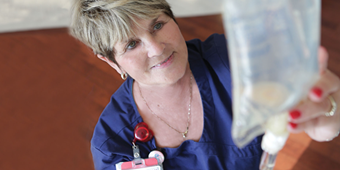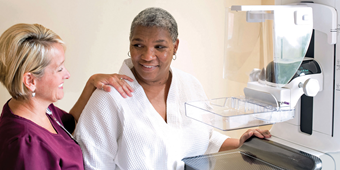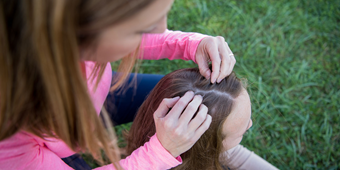HPV Vaccine Now Approved for Adults 27 to 45

Answer a few questions and we'll provide you with a list of primary care providers that best fit your needs.
Didn’t get the HPV (human papillomavirus) vaccine when you were a child or young adult? Not to worry. The U.S. Food and Drug Administration (FDA) has you covered. The Gardasil 9 HPV vaccine is now approved to include men and women ages 27 to 45.
Originally approved for ages 9 to 26, Gardasil 9 protects against the nine strains of HPV that are responsible for the majority of HPV-related cancers and diseases, including genital warts. Previous vaccine versions covered up to four HPV strains.
Why Get the HPV Vaccine?
According to the Centers for Disease Control and Prevention (CDC), about 14 million Americans become infected with HPV each year, and about 4,000 women die from cervical cancer caused by certain HPV strains. In addition, HPV is associated with several other forms of cancer affecting both men and women.
“Vaccines in general are wonderful at preventing disease,” says family physician Melinda Ruff, MD. While cancer treatment has become increasingly advanced, she says, “it’s more exciting to go two or four steps before cancer develops so you never have to do that treatment.”
And just because you’re in a monogamous relationship now doesn’t mean you’ll never get exposed to an HPV strain down the road. “Stuff happens,” Dr. Ruff cautions. “There are still theoretical risks.”
According to the Centers for Disease Control and Prevention (CDC), about 14 million Americans become infected with HPV each year, and about 4,000 women die from cervical cancer caused by certain HPV strains.
Study Shows HPV Vaccine Works

The FDA’s approval for expanded vaccine use was based on a study of women 27 through 45 years of age. They were vaccinated with the previous Gardasil, which covered four HPV strains, and they were followed for an average of three and a half years.
The vaccine was found to be 88 percent effective in preventing infection, genital warts, precancerous lesions, and cervical cancer related to the HPV strains covered by the vaccine. Long-term follow-up study data also contributed to overall findings.
”It’s just amazing how much potential cancer there would have been that we’ve prevented,” Dr. Ruff marvels. “That’s pretty impressive data.”
Since the virus is sexually transmitted, most adults encounter at least one HPV strain at some point in their lives. If you’ve already been exposed to a particular strain of HPV, the vaccine won’t work against that one, but it will protect you against strains you’ve not yet encountered.
“I think it’s a worthwhile vaccine,” she says, noting the impressive data and little to no side effects.
Who Should Get the Gardasil 9 Vaccine?
Dr. Ruff strongly advises the HPV vaccine for her patients, following the CDC’s recommendations for the HPV vaccine, which currently extend only through age 26. In addition, she offers the below recommendations in light of the recent FDA approval for expanded use.
- People 45 and under who’ve never received the HPV vaccine should consult with their doctors regarding the benefits of HPV vaccination.
- People 45 and under who received a previous HPV vaccine series that covered four or fewer HPV strains and are concerned with maximum HPV protection should consult with their doctors.
She cautions that some insurance plans may not cover the vaccine for the expanded age range. It’s best to check with your insurance coverage since the full series of vaccines can cost well over $400 to $500.
Answer a few questions and we'll provide you with a list of primary care providers that best fit your needs.
Source: U.S. Food and Drug Administration; The New York Times; CNN; Melinda Ruff, MD, Centerville Family Practice, Premier Health





